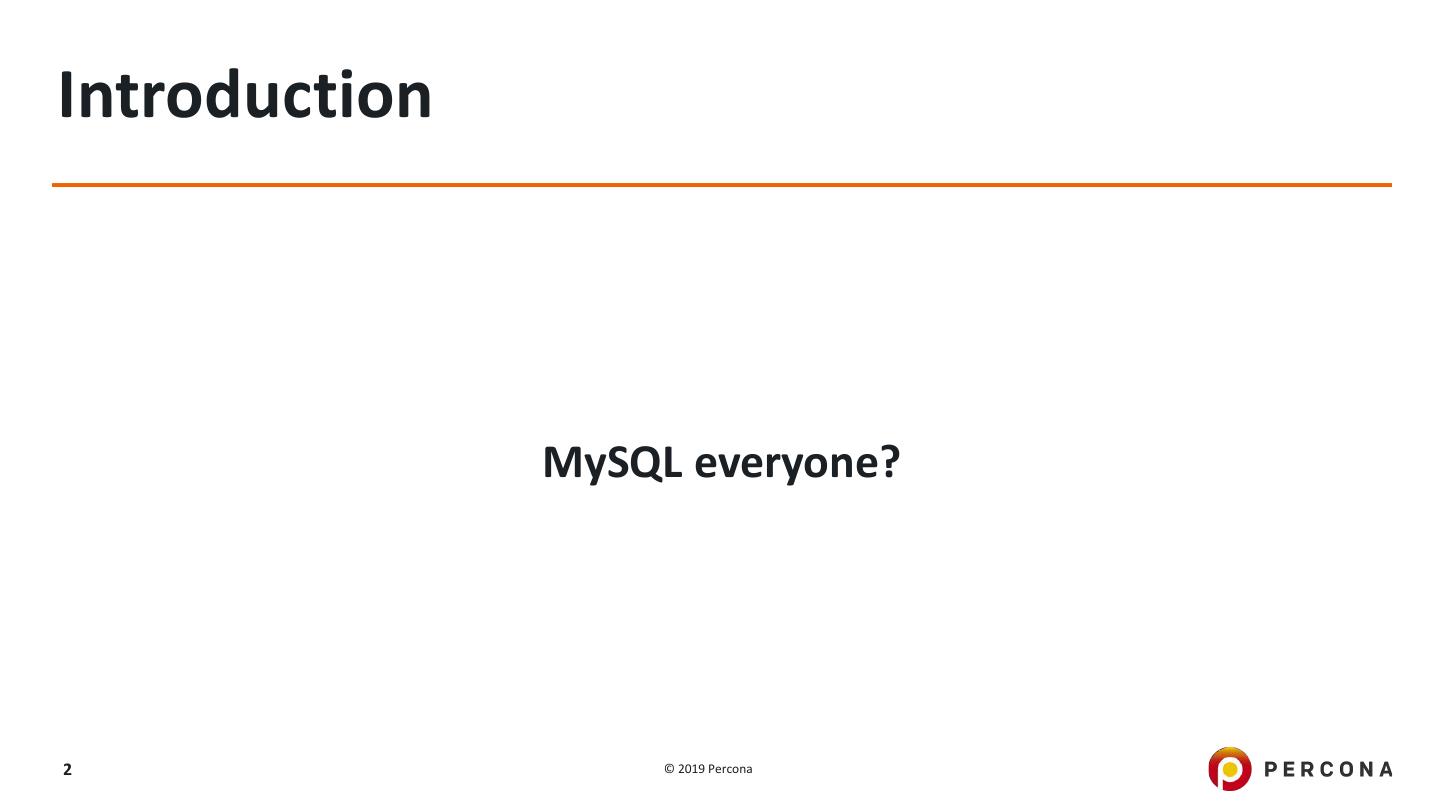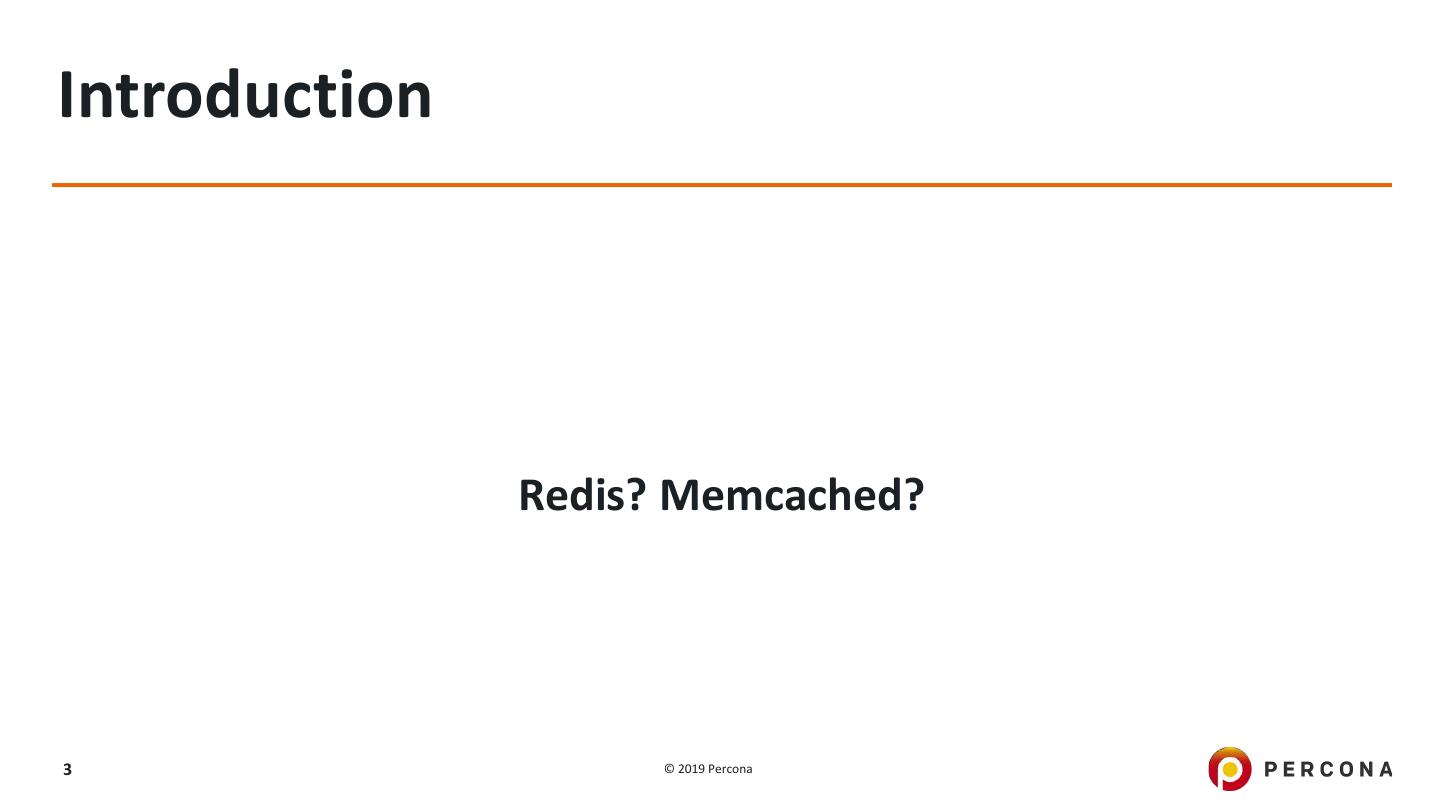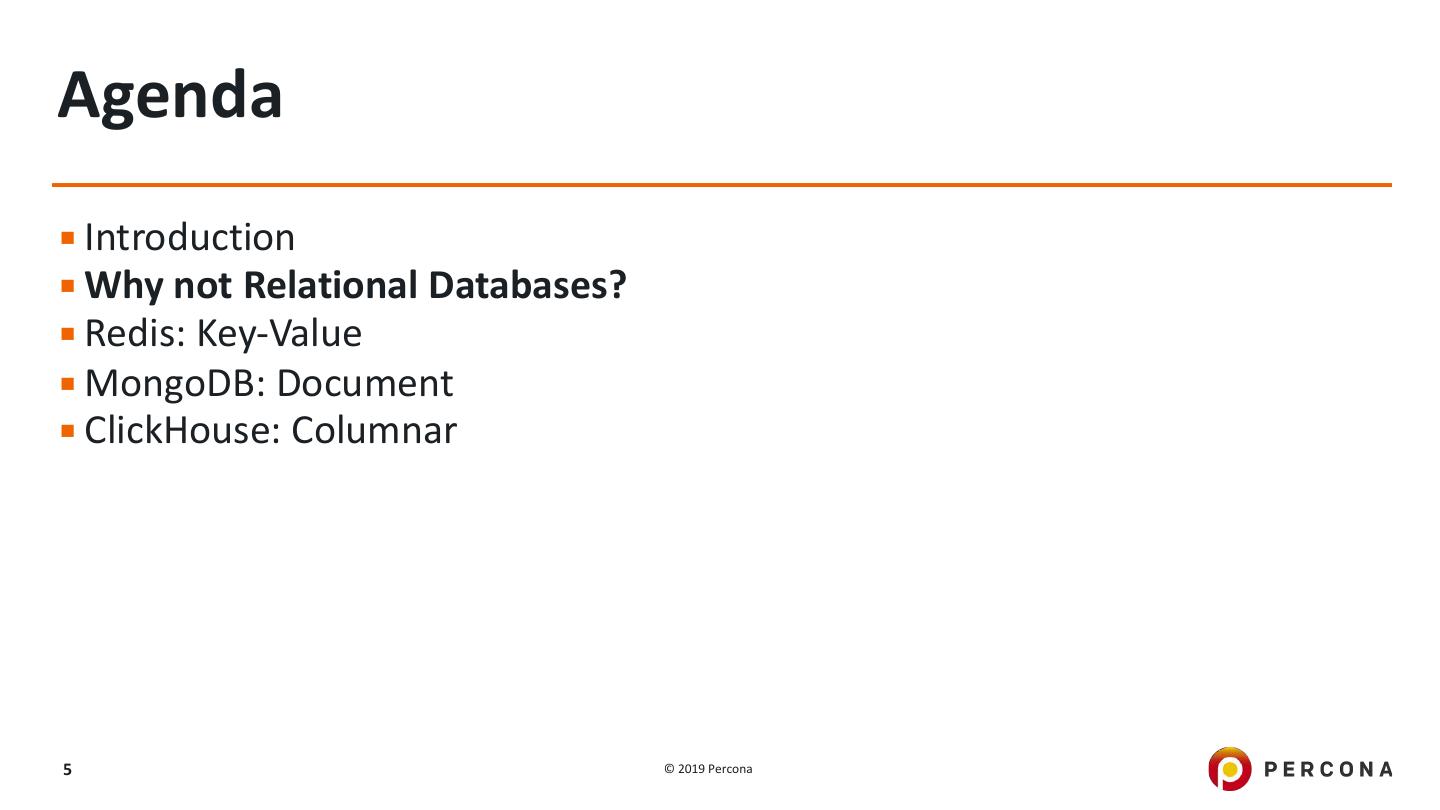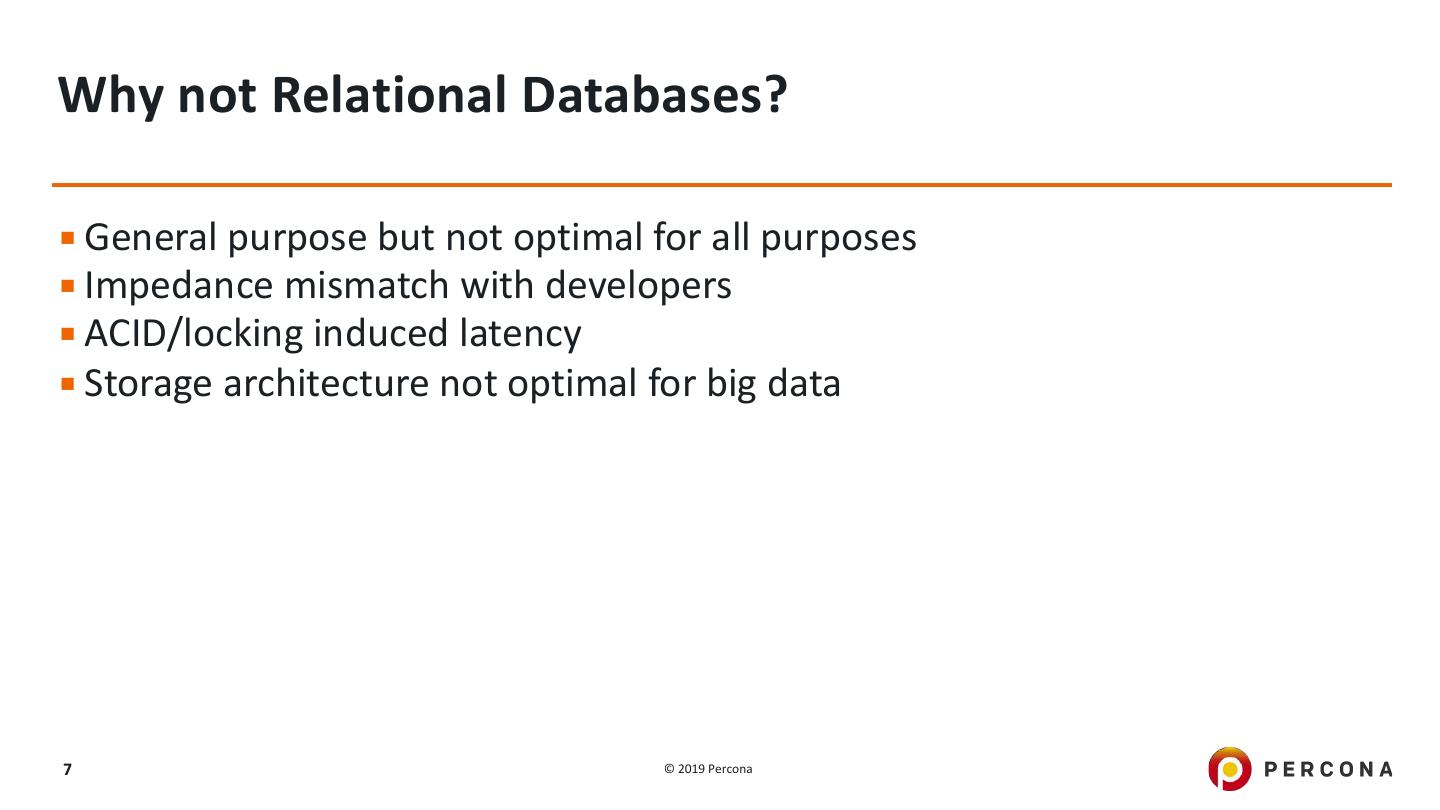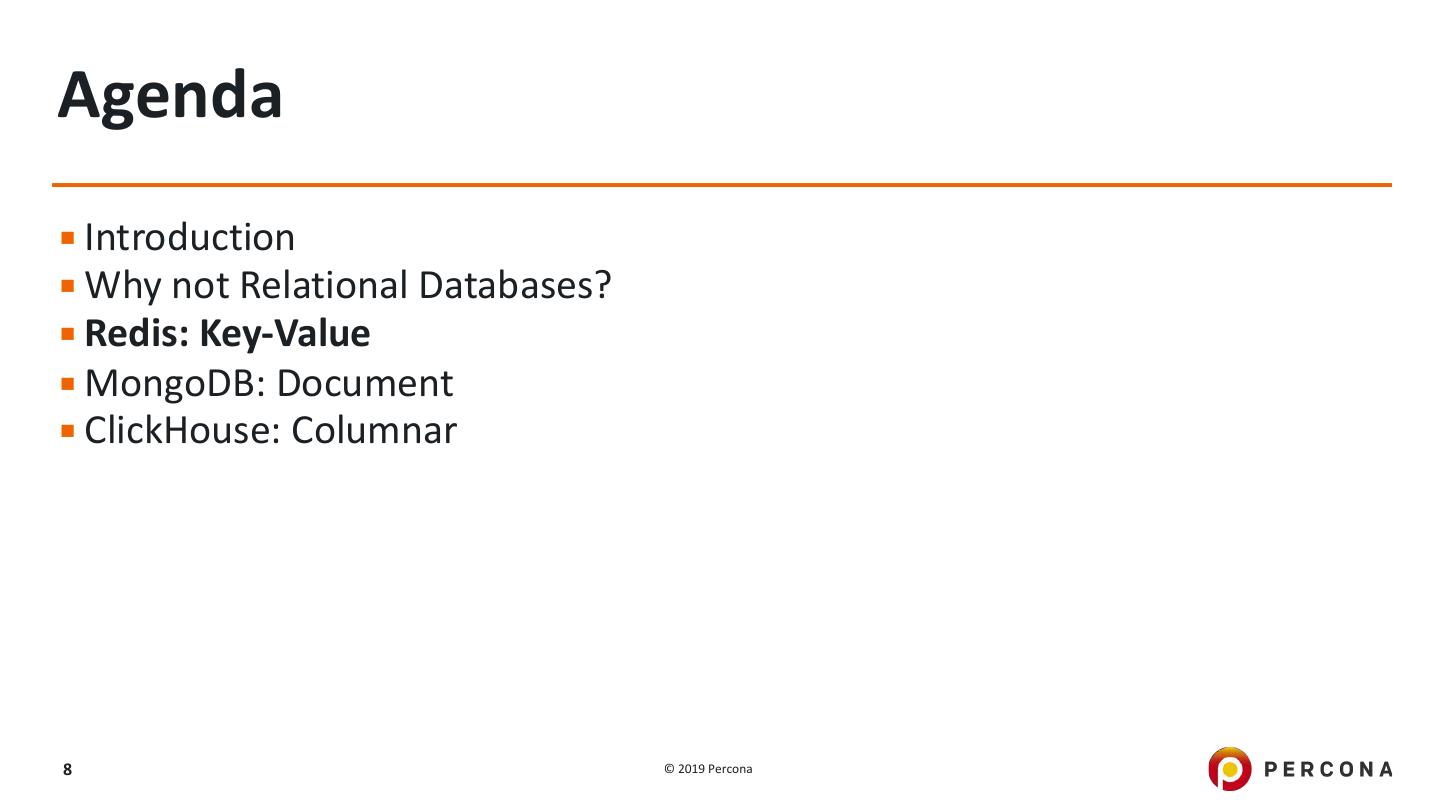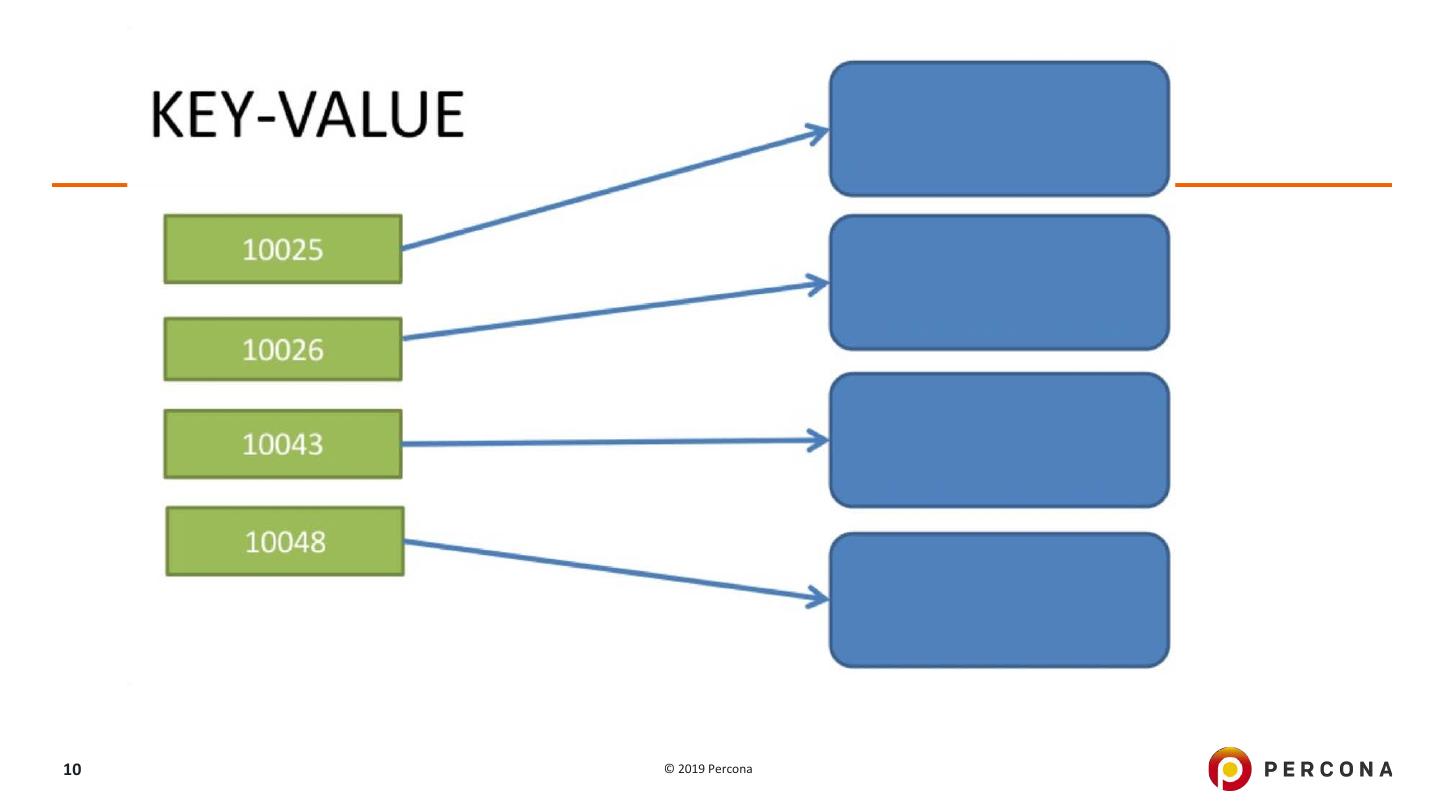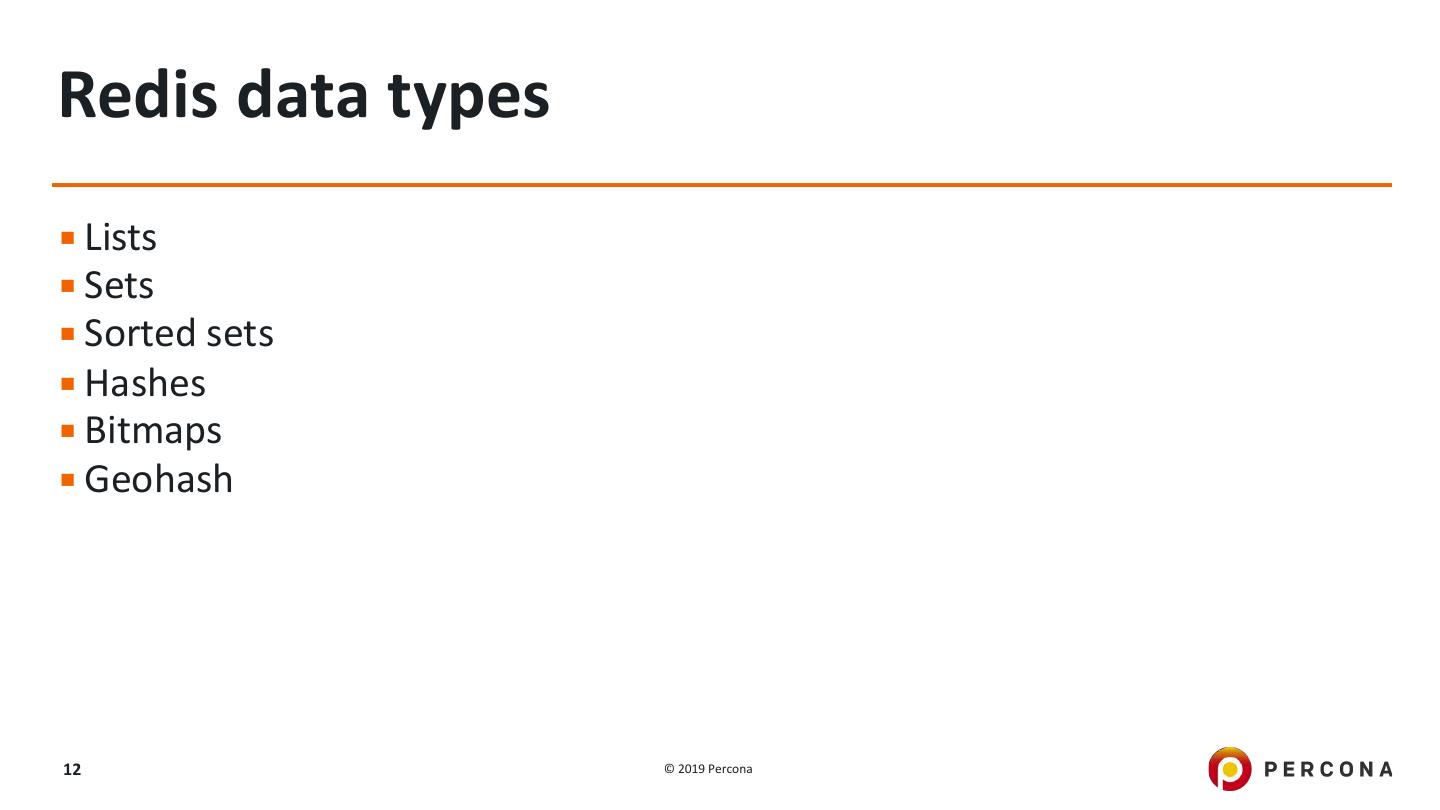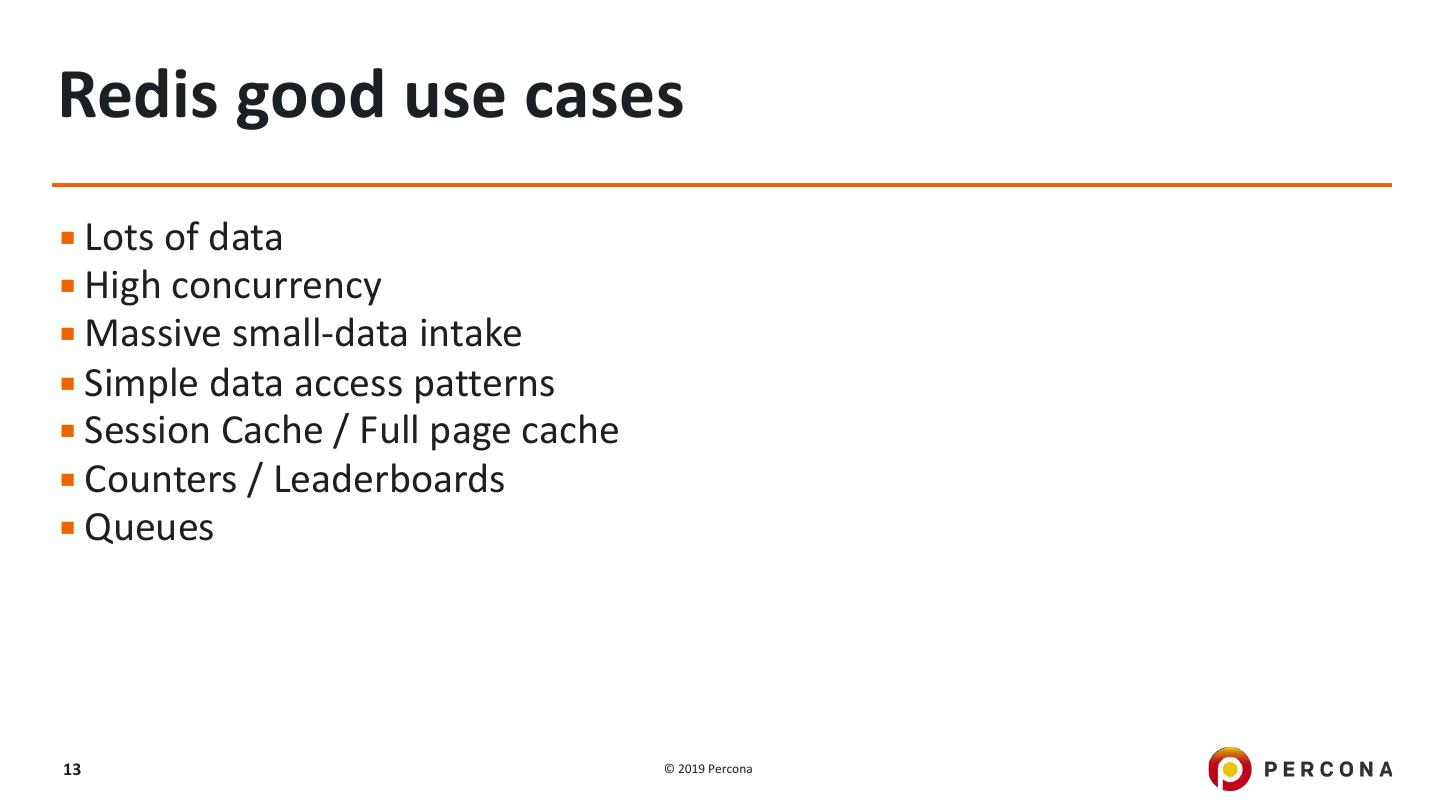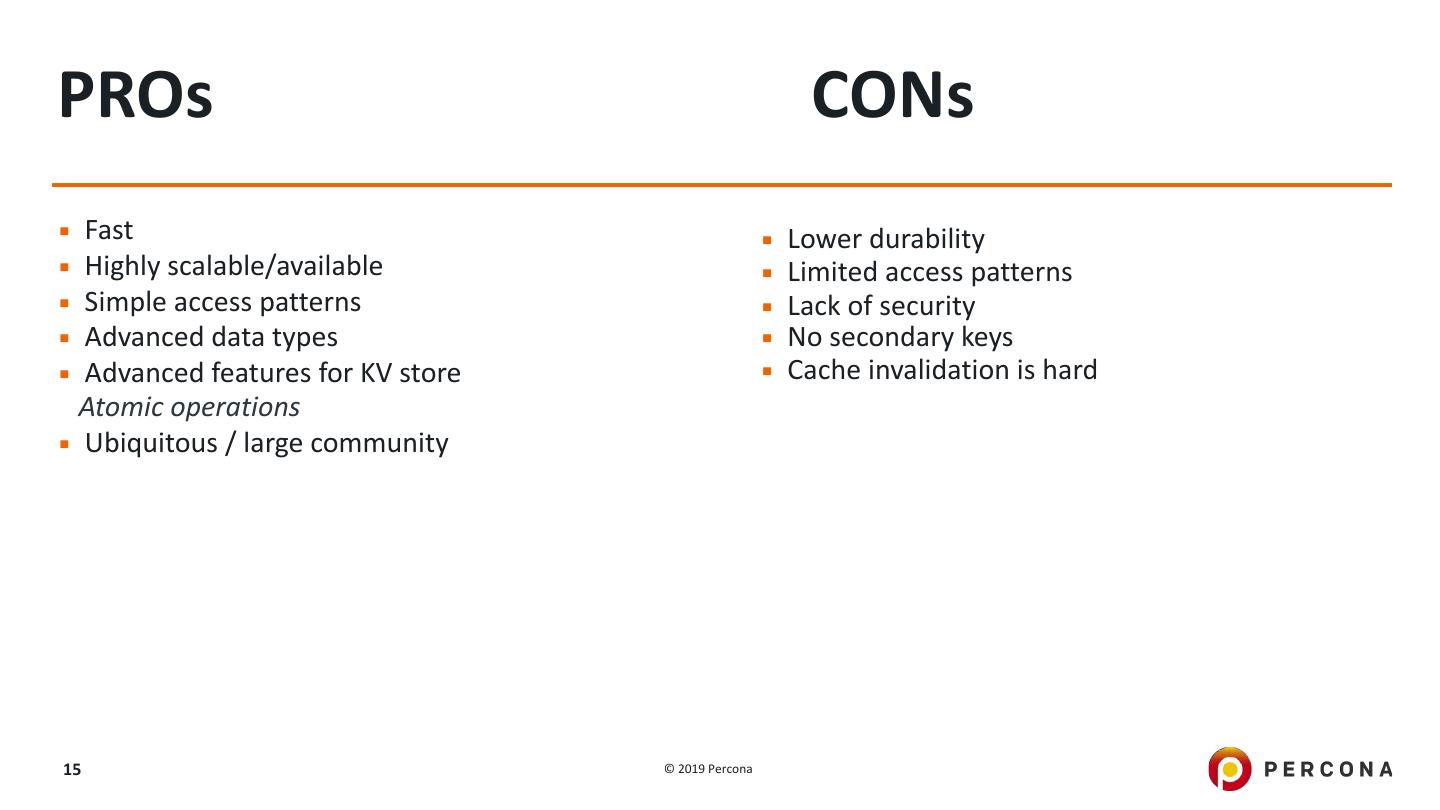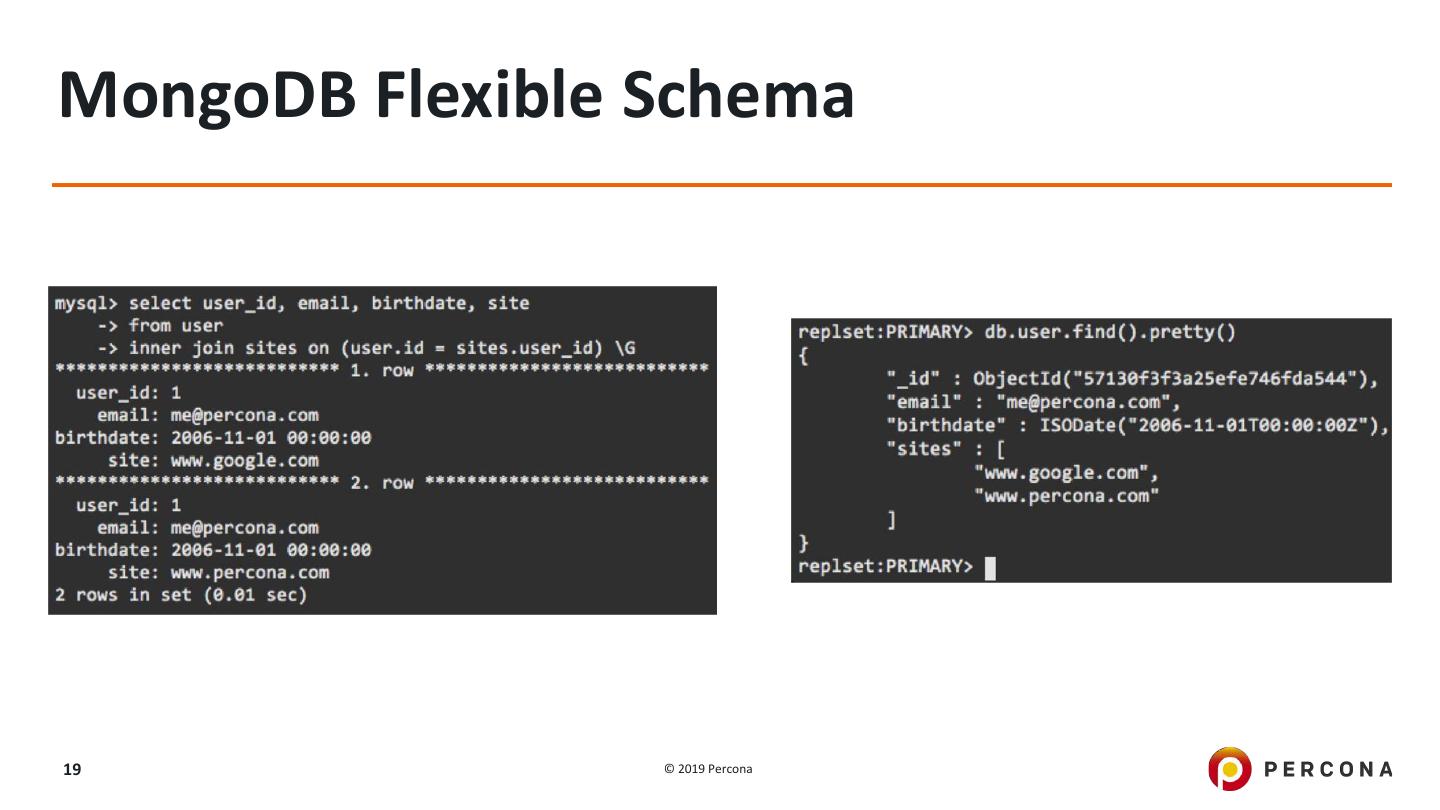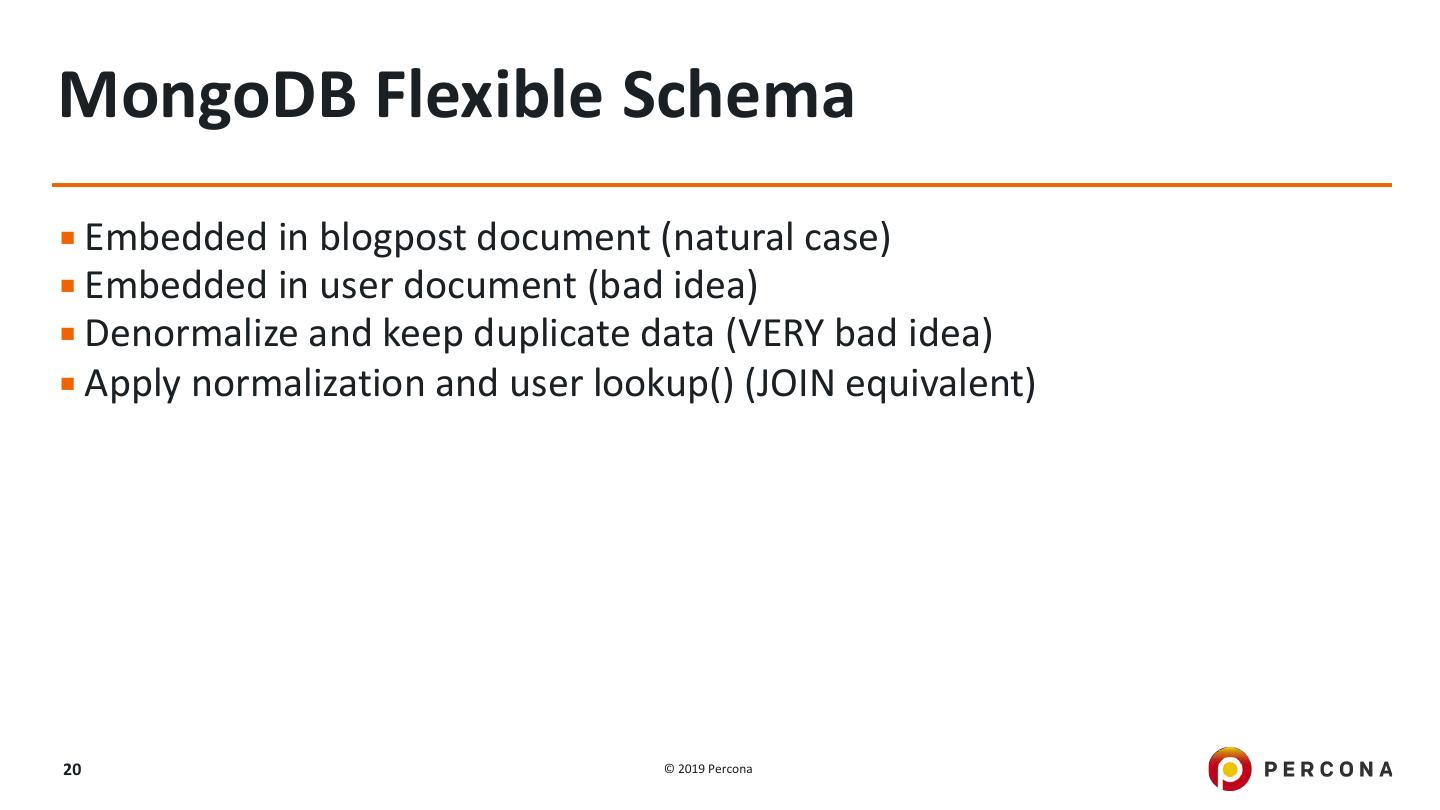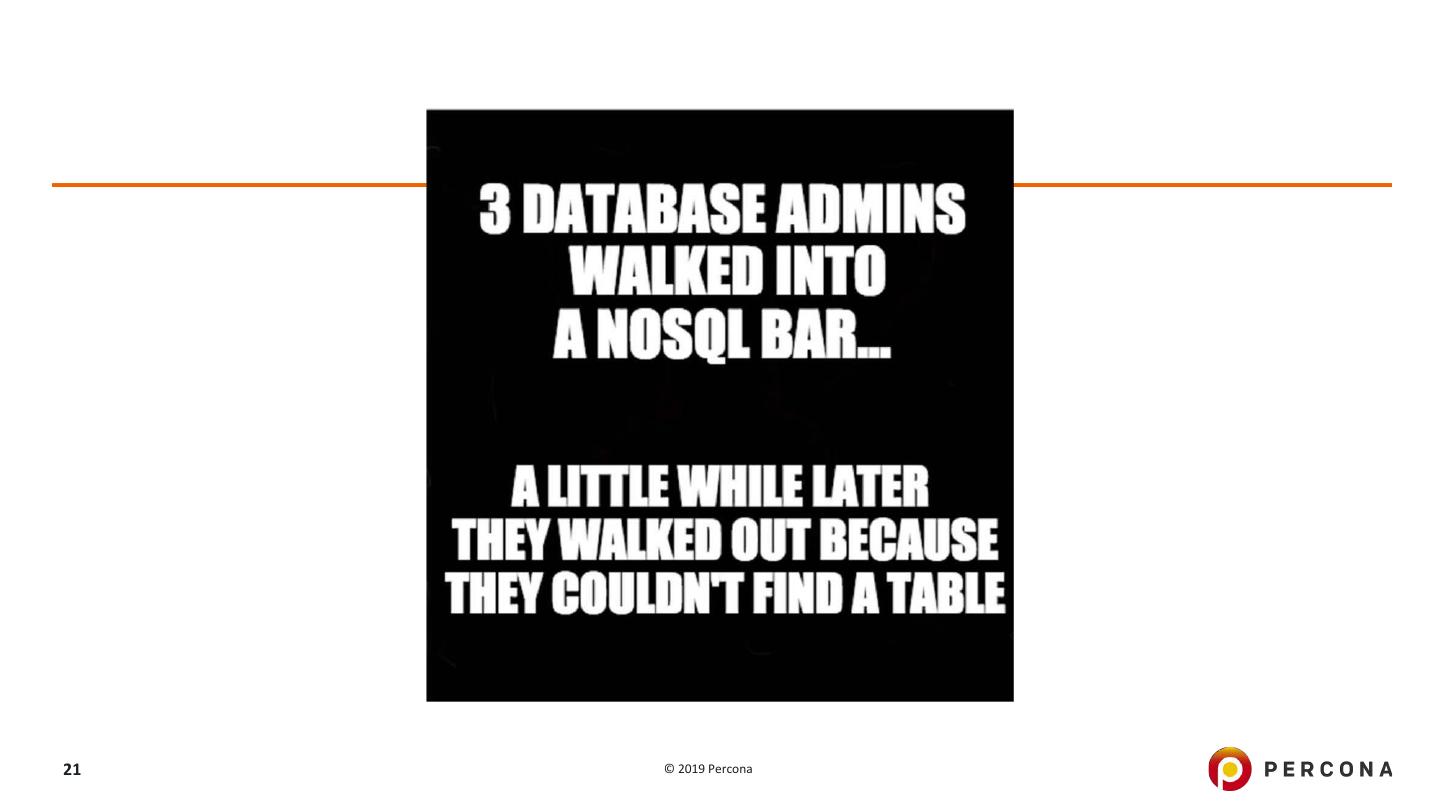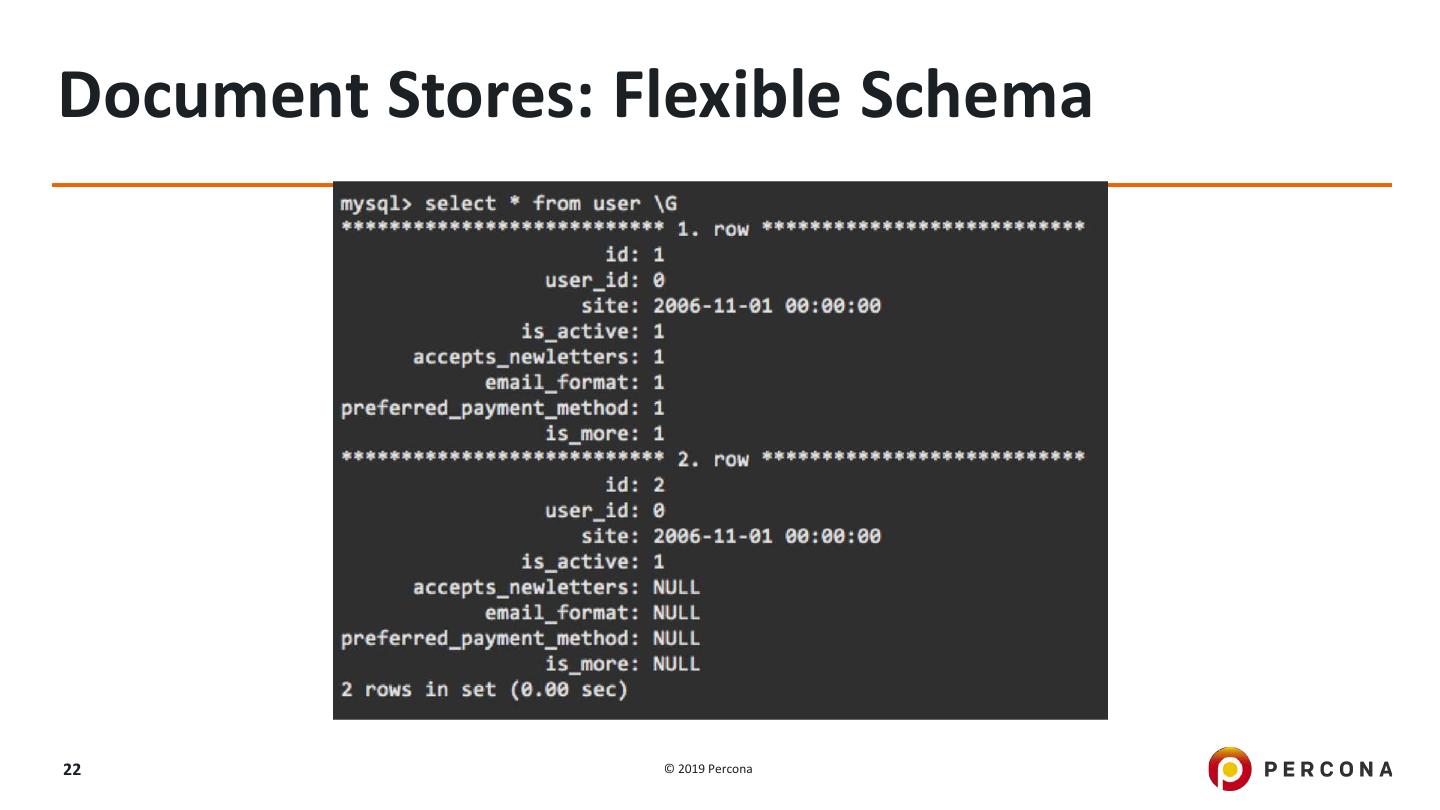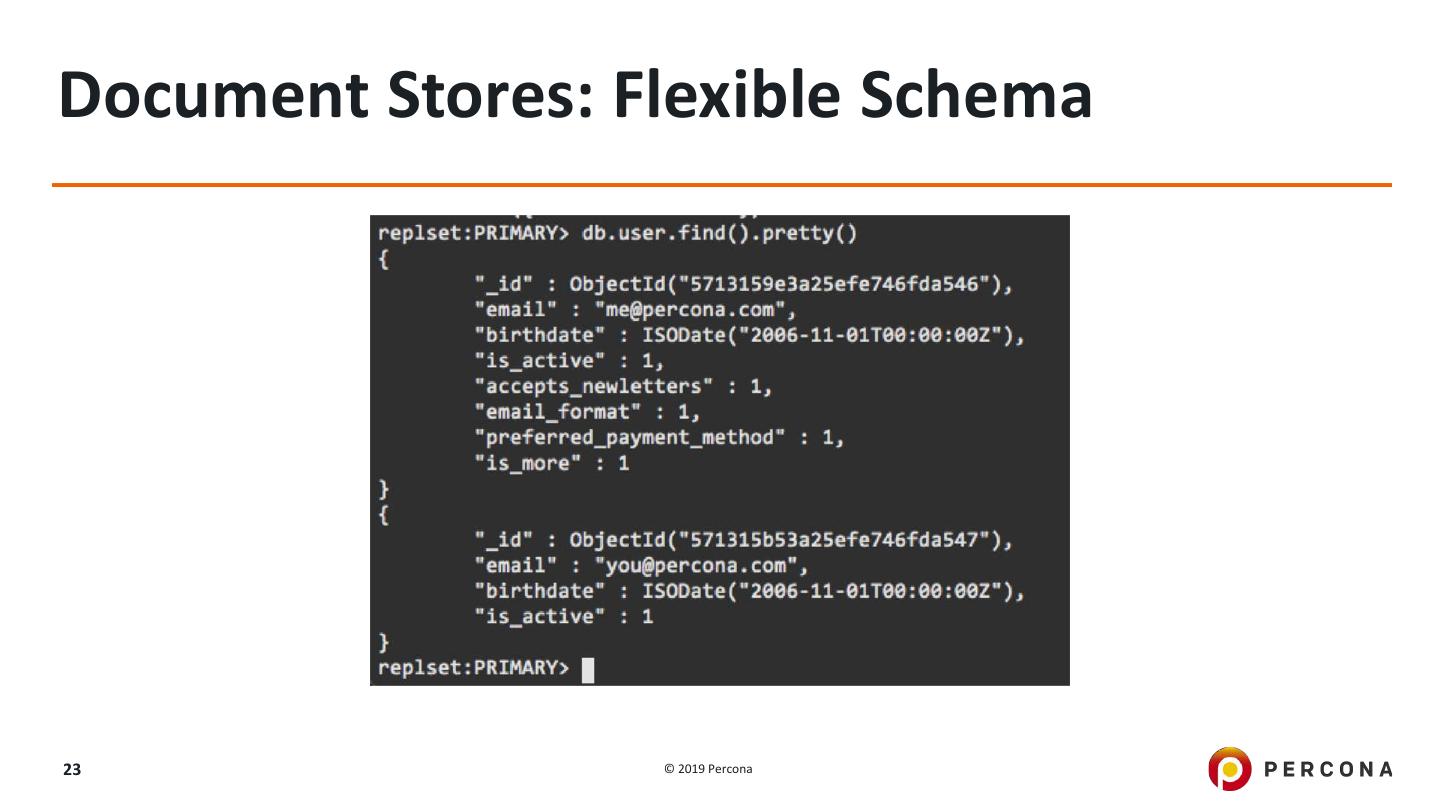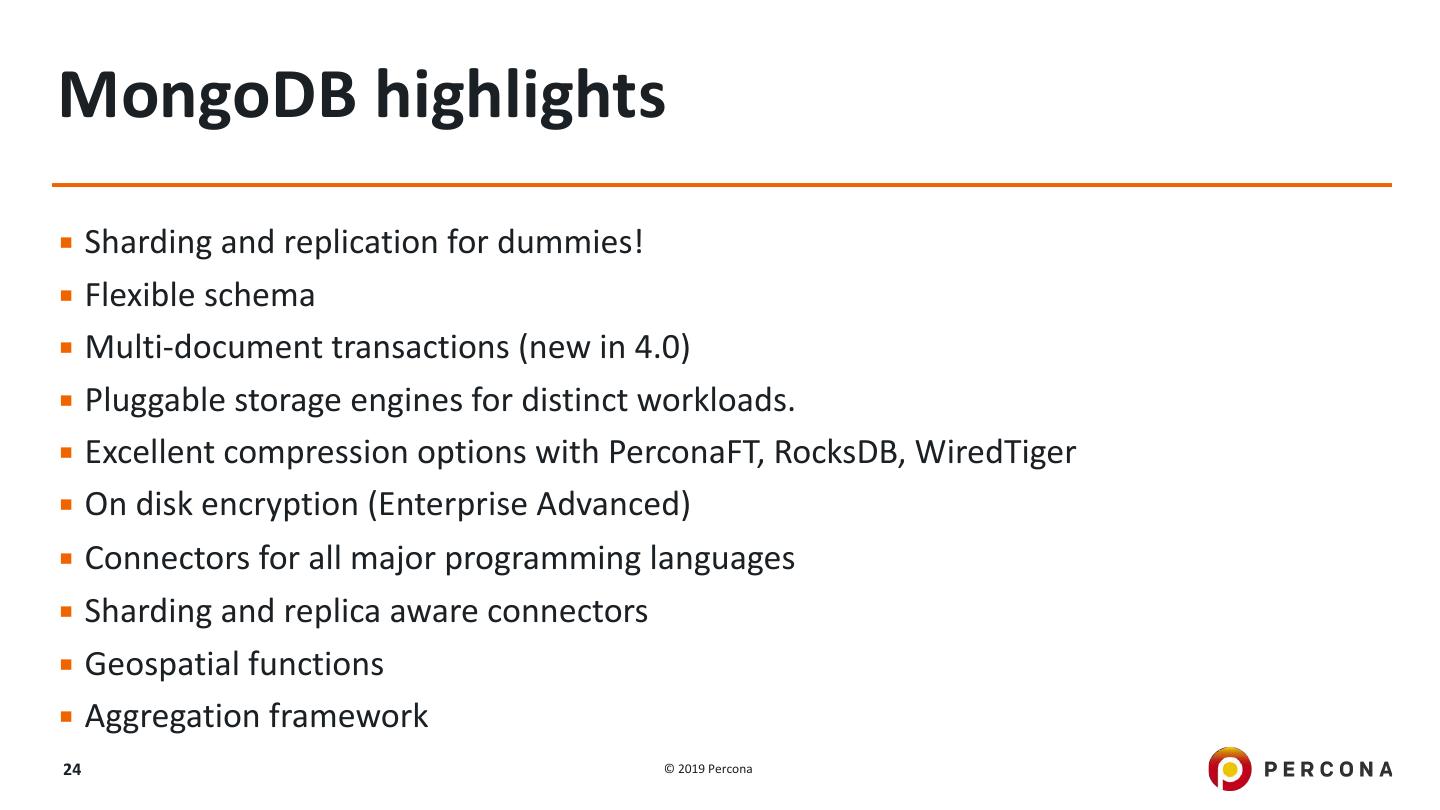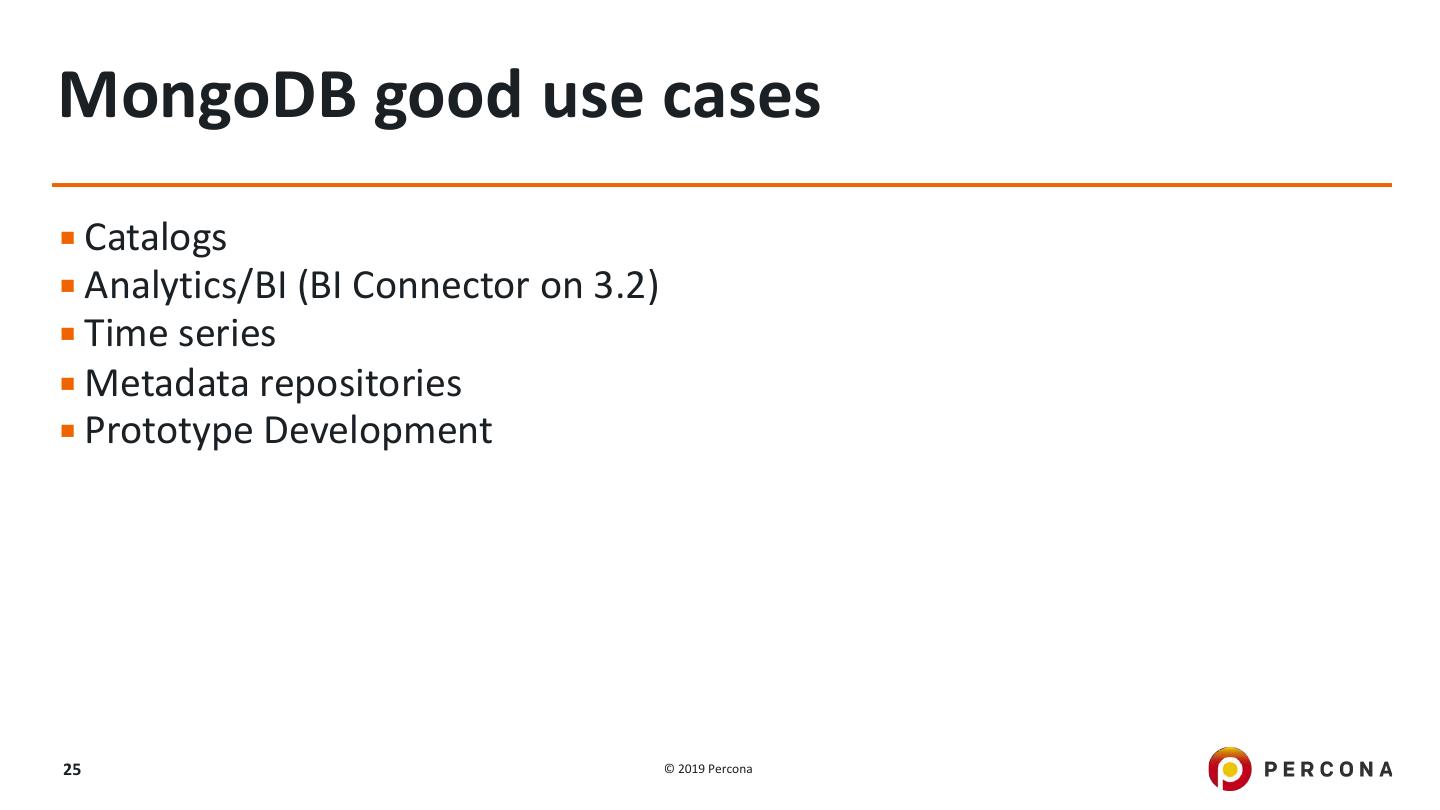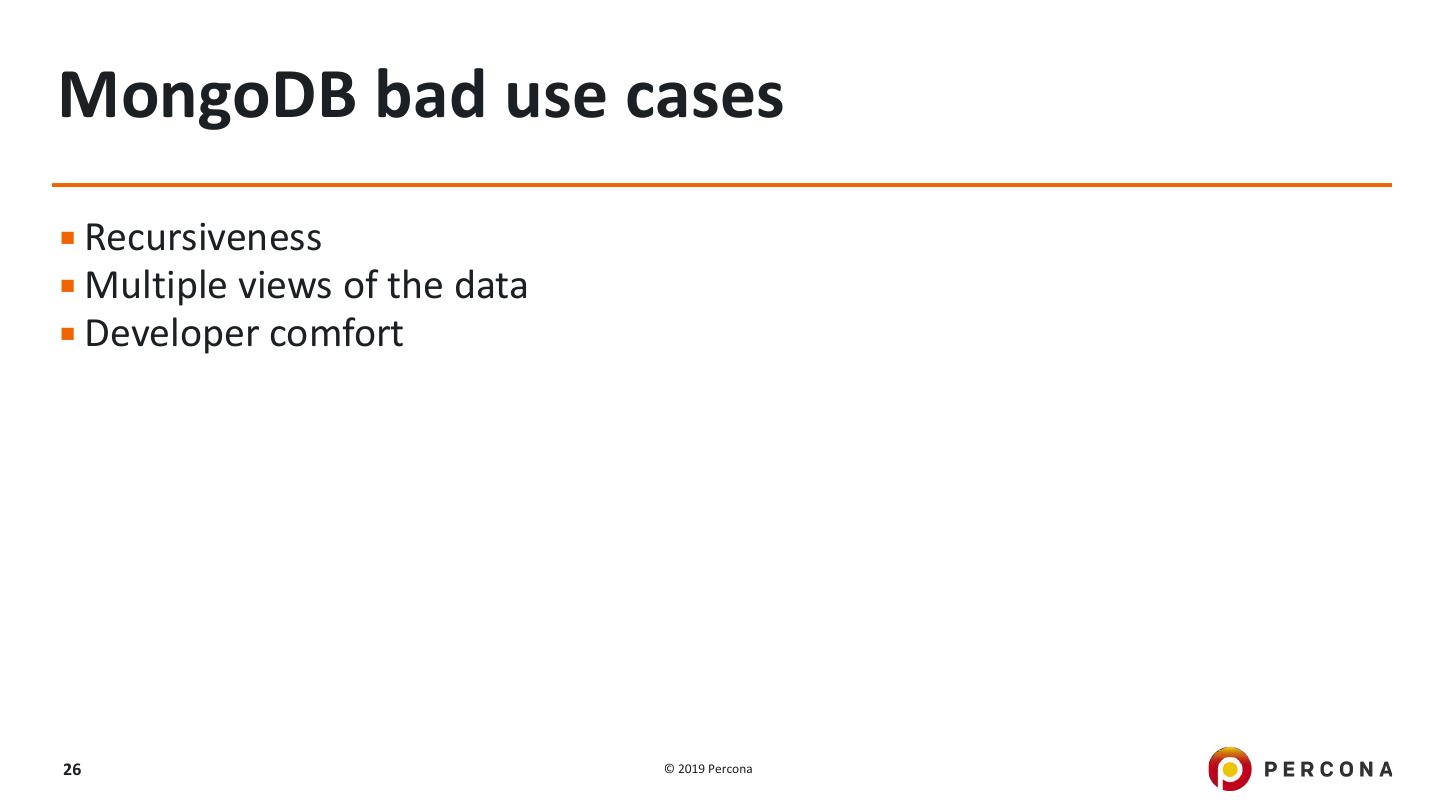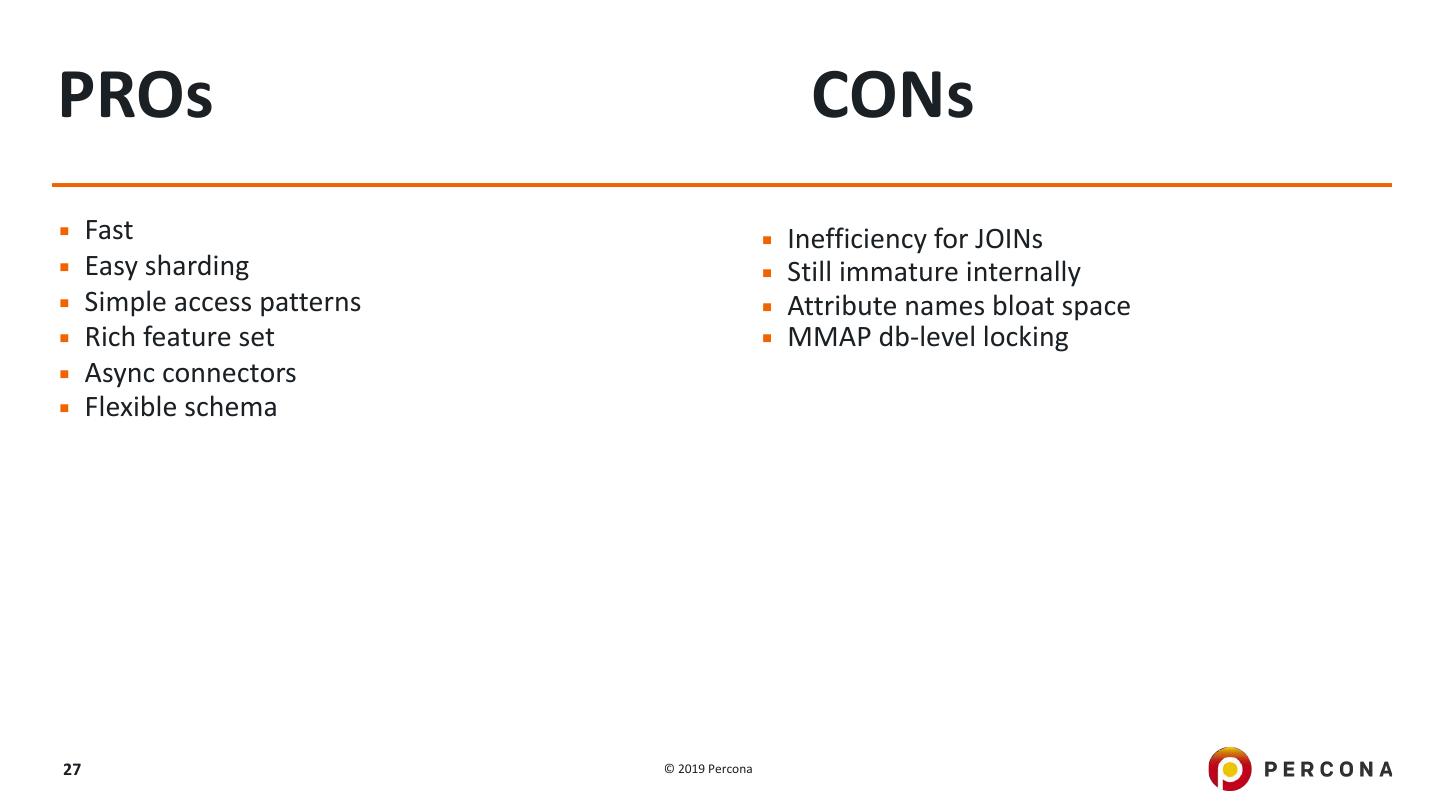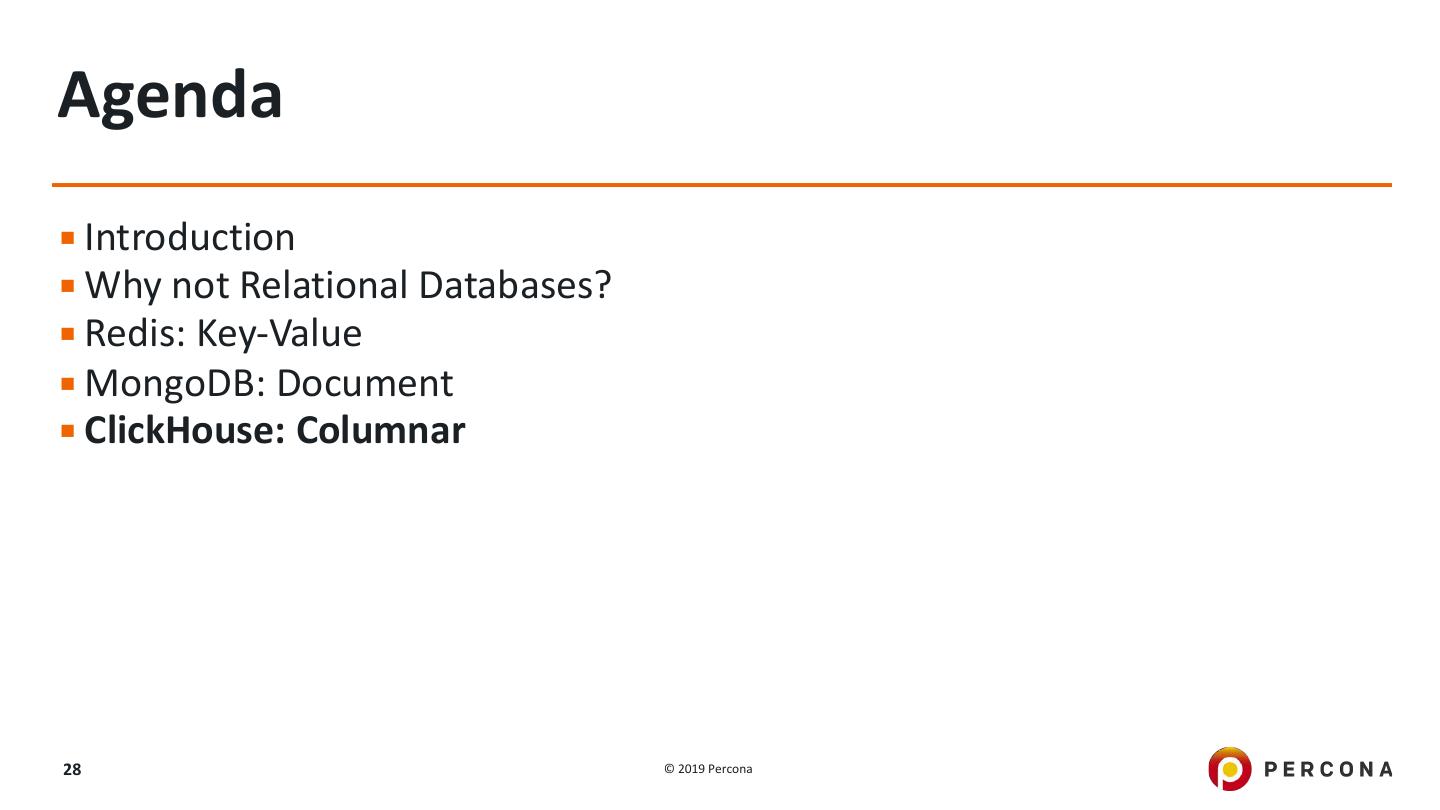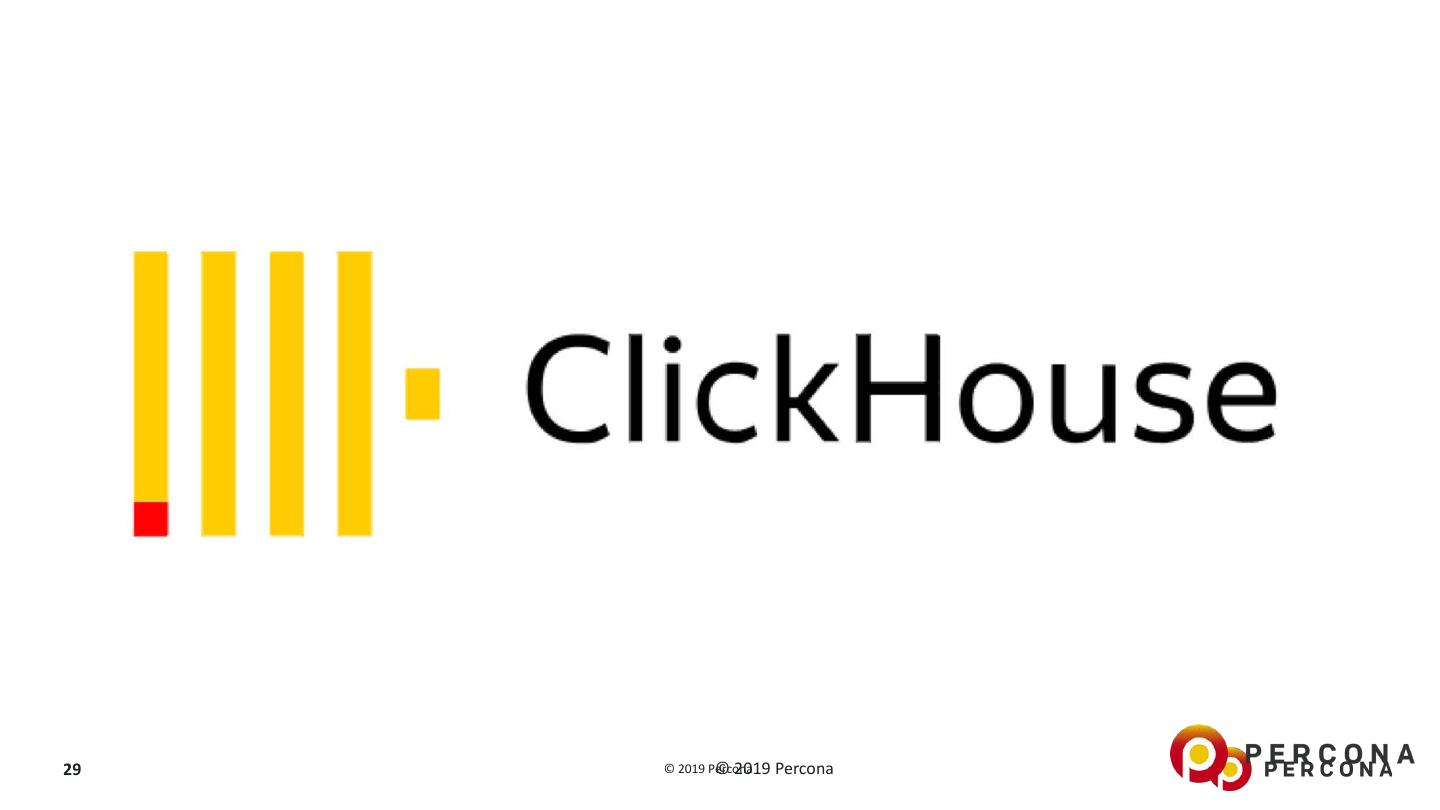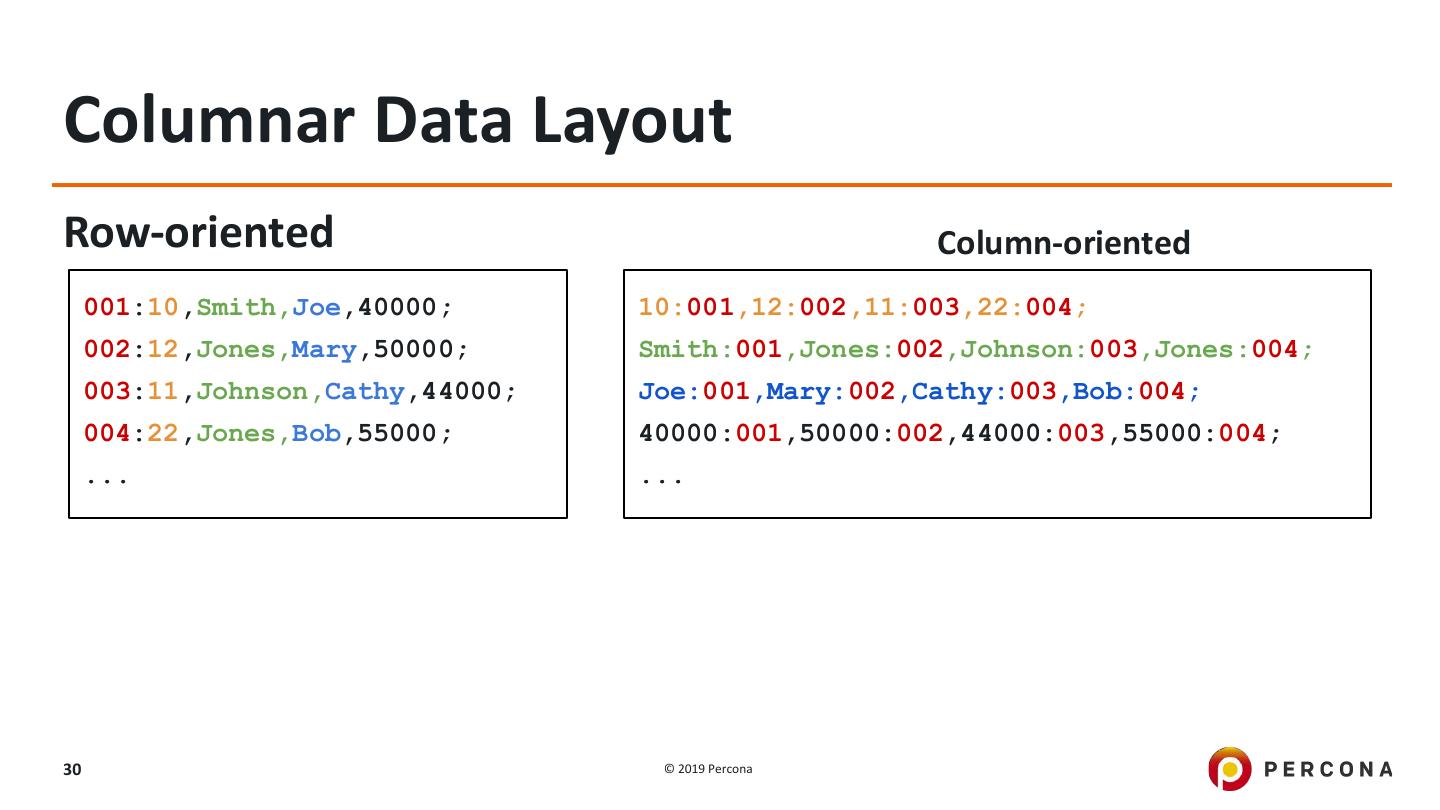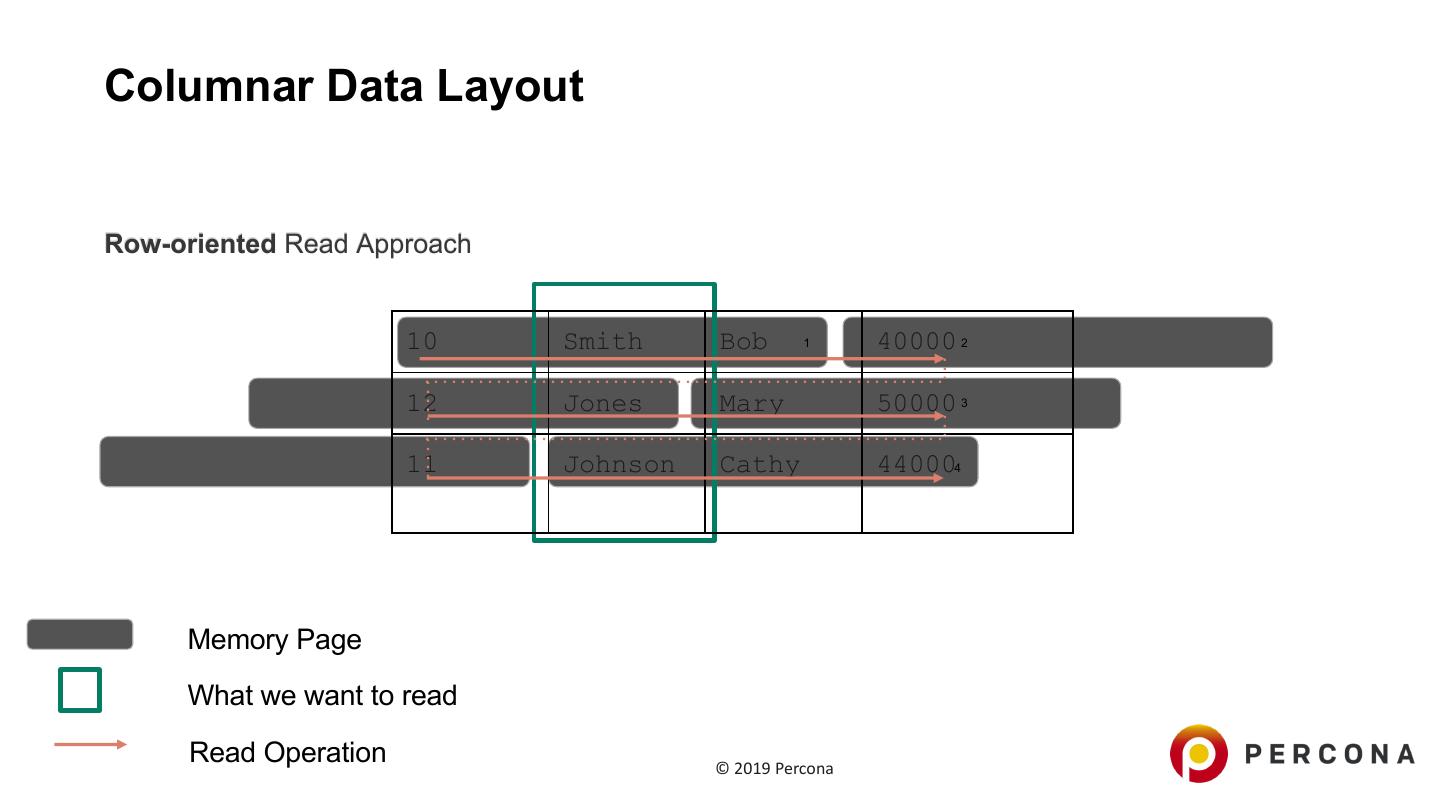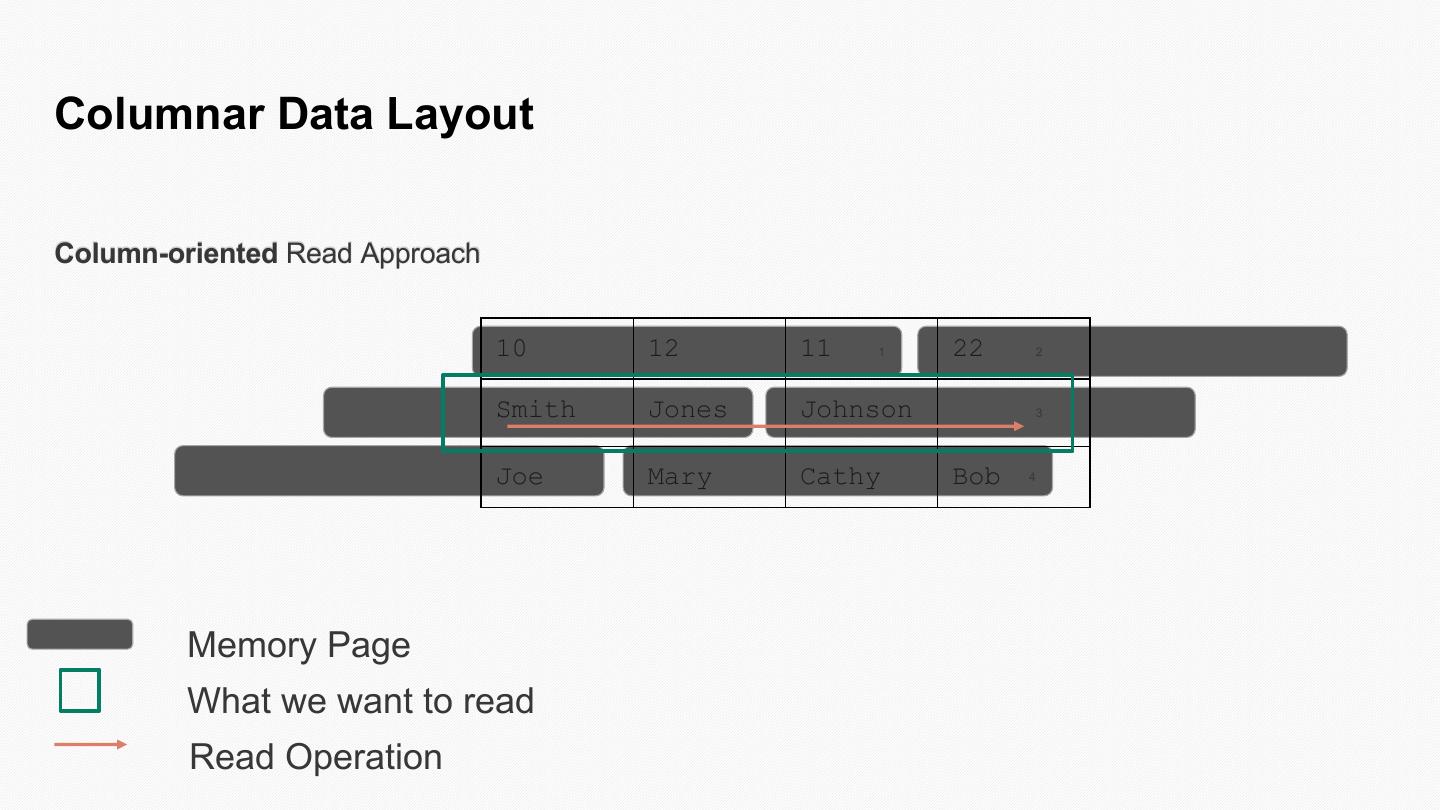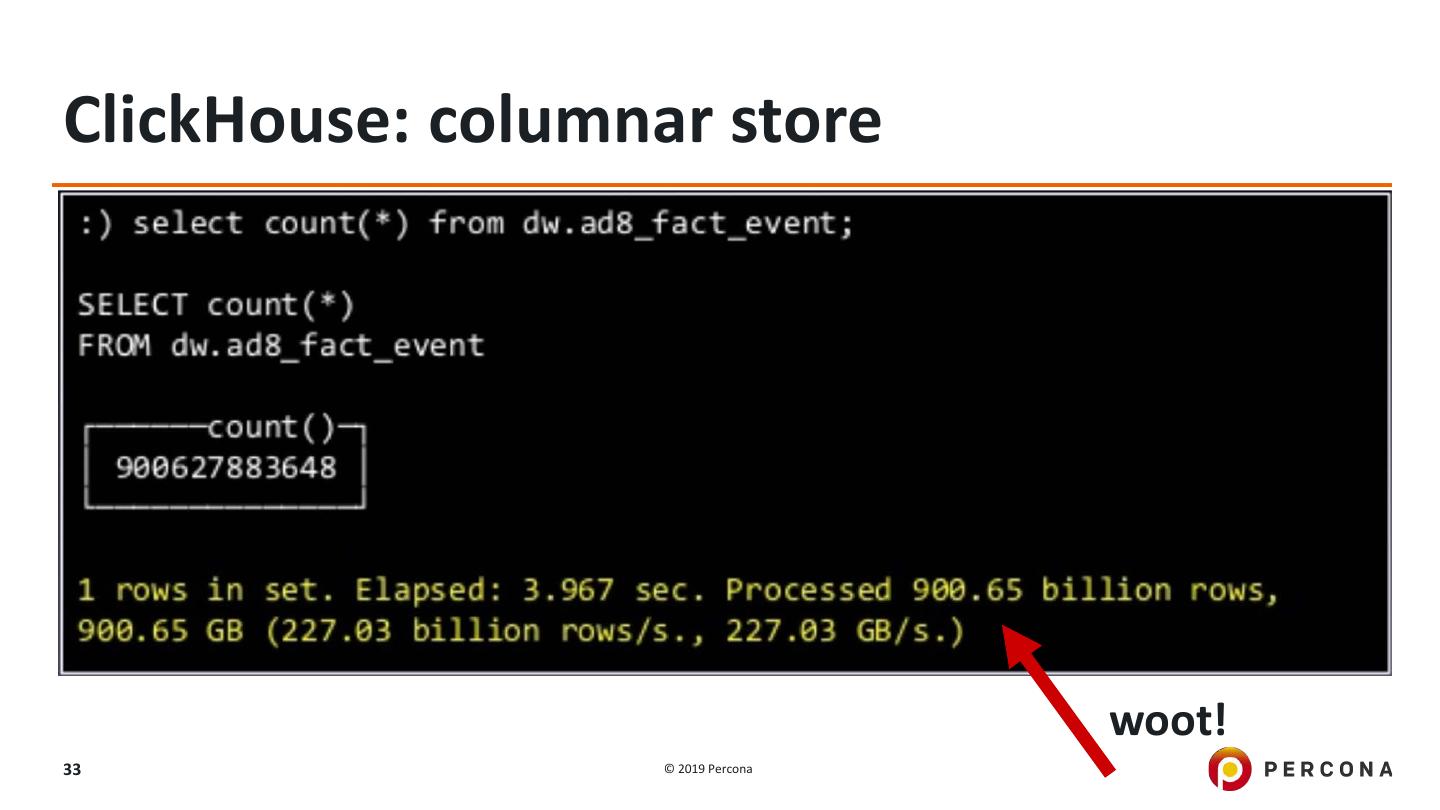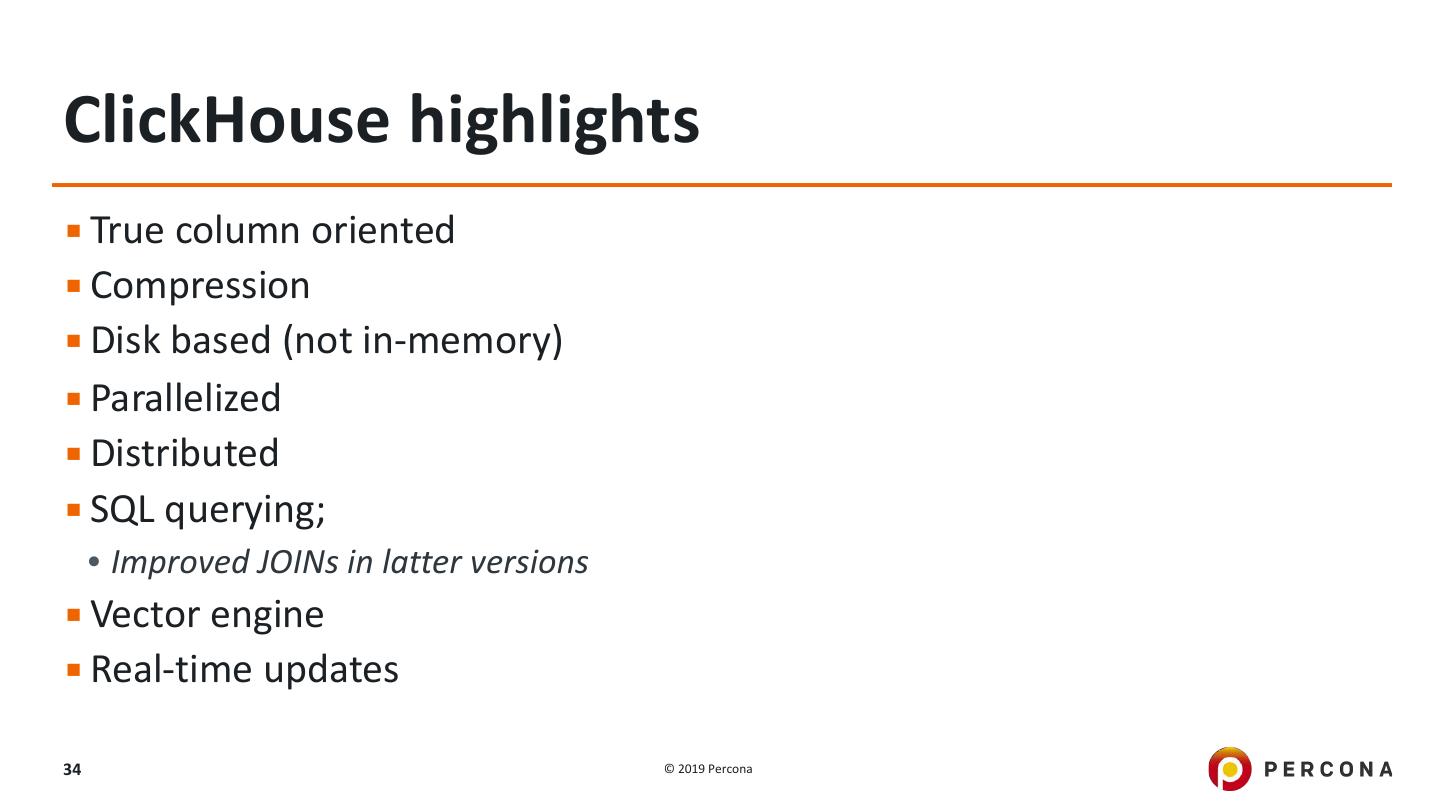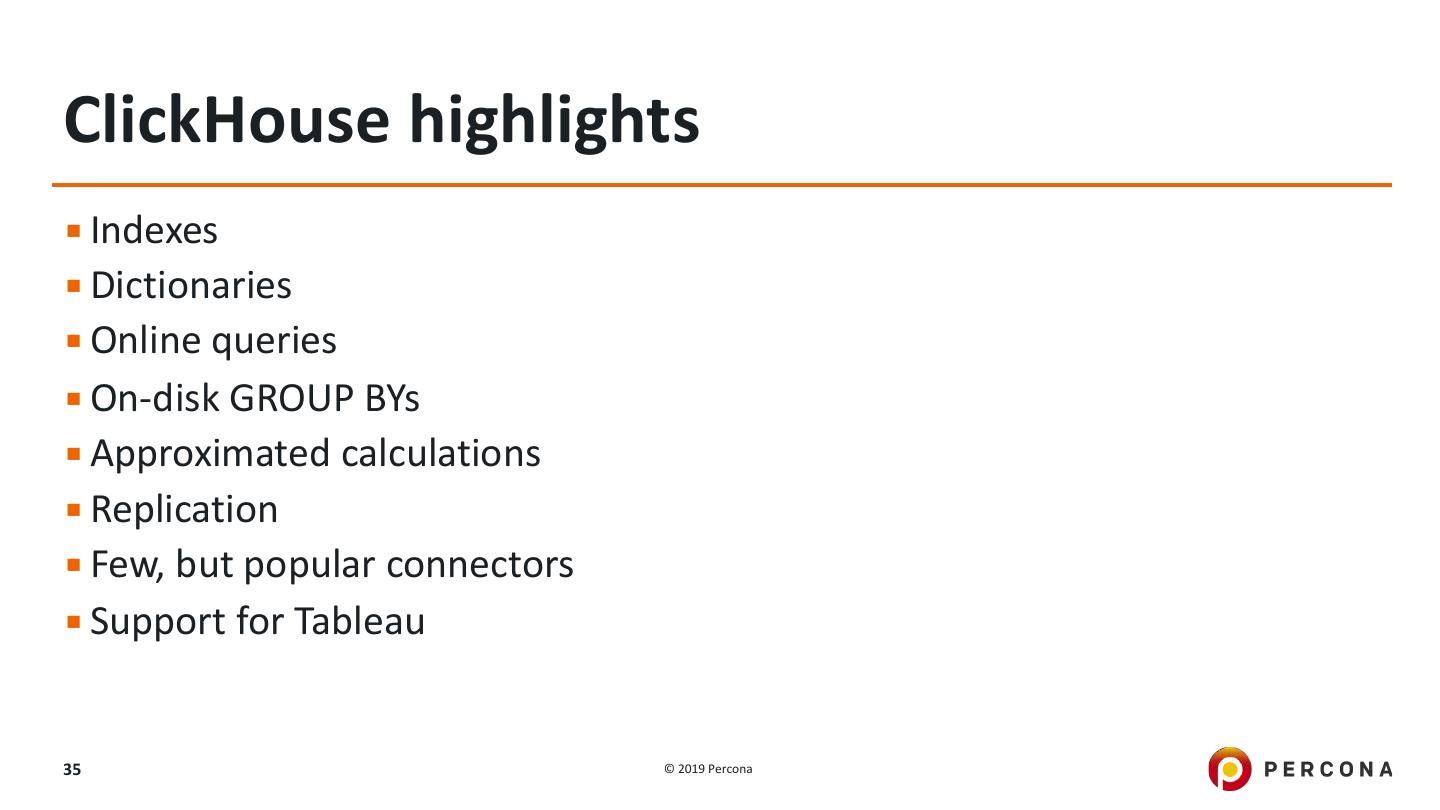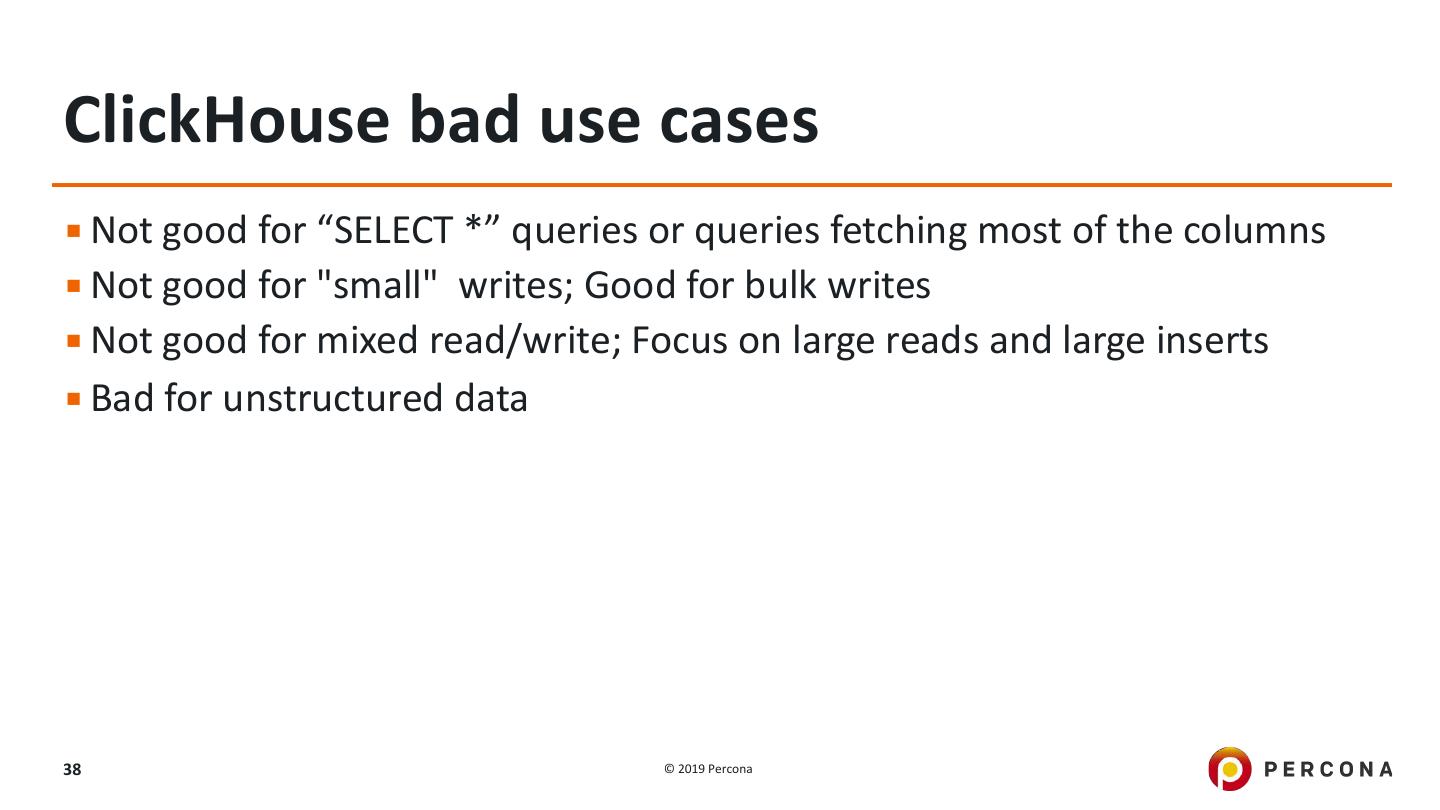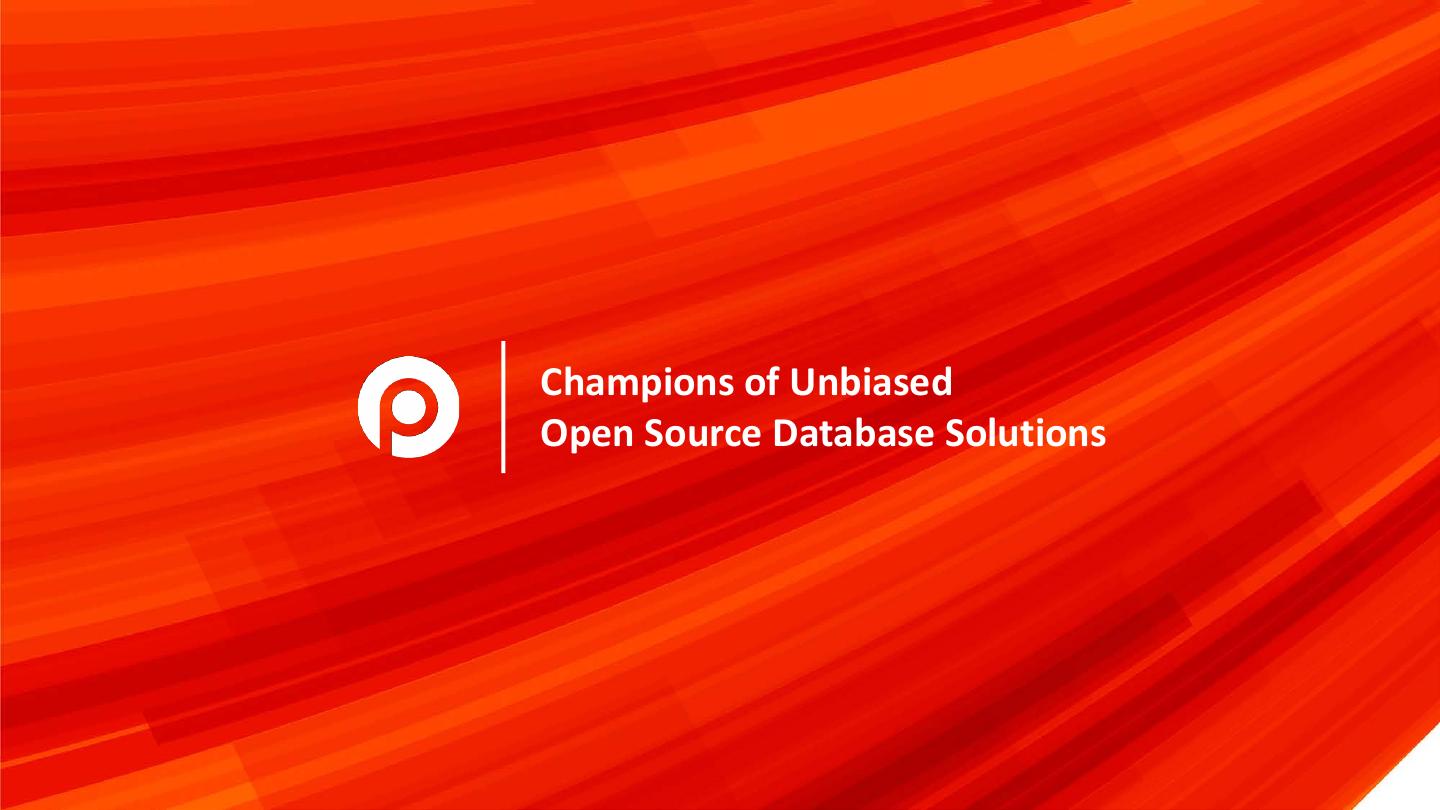- 快召唤伙伴们来围观吧
- 微博 QQ QQ空间 贴吧
- 文档嵌入链接
- 复制
- 微信扫一扫分享
- 已成功复制到剪贴板
Beyond Relational Databases: MongoDB, Redis and ClickHouse
我们都使用并喜欢关系数据库…直到我们把它们用于它们不适合的目的。队列、缓存、目录、非结构化数据、计数器和许多其他用例可以用关系数据库来解决,但最好用其他替代方法来解决。
在本文中,我们将通过查看一些现代开放源代码实现来回顾这些可选范例的目标、优缺点以及优缺点用例。
在本次演讲结束时,听众将学习三种数据库范式(文档、键值和列存储)的基础知识,并知道何时选择其中一种模式或何时支持关系数据库并避免陷入流行语诱惑。
展开查看详情
1 . Beyond Relational Databases: MongoDB, Redis & ClickHouse Marcos Albe - Principal Support Engineer @ Percona 1 © 2019 Percona
2 .Introduction MySQL everyone? 2 © 2019 Percona
3 .Introduction Redis? Memcached? 3 © 2019 Percona
4 . Image credits: 451 Research (https://451research.com/state-of-the-database-landscape) 4 © 2019 Percona
5 .Agenda ▪ Introduction ▪ Why not Relational Databases? ▪ Redis: Key-Value ▪ MongoDB: Document ▪ ClickHouse: Columnar 5 © 2019 Percona
6 .Why not Relational Databases? 6 © 2019 Percona
7 .Why not Relational Databases? ▪ General purpose but not optimal for all purposes ▪ Impedance mismatch with developers ▪ ACID/locking induced latency ▪ Storage architecture not optimal for big data 7 © 2019 Percona
8 .Agenda ▪ Introduction ▪ Why not Relational Databases? ▪ Redis: Key-Value ▪ MongoDB: Document ▪ ClickHouse: Columnar 8 © 2019 Percona
9 .9 © 2019 Percona
10 .10 © 2019 Percona
11 .Redis highlights ▪ Fast… very fast. ▪ Mature / large community ▪ Many data structures ▪ Advanced features ▪ Horizontally scalable / built-in HA (Sentinel / Cluster) ▪ BSD license / Commercial licenses available ▪ Client libraries for about every programming language 11 © 2019 Percona
12 .Redis data types ▪ Lists ▪ Sets ▪ Sorted sets ▪ Hashes ▪ Bitmaps ▪ Geohash 12 © 2019 Percona
13 .Redis good use cases ▪ Lots of data ▪ High concurrency ▪ Massive small-data intake ▪ Simple data access patterns ▪ Session Cache / Full page cache ▪ Counters / Leaderboards ▪ Queues 13 © 2019 Percona
14 .Redis bad Use Cases ▪ Durability and consistency ▪ Complex data access patterns ▪ Non-PK access ▪ Security concerns 14 © 2019 Percona
15 .PROs CONs ▪ Fast ▪ Lower durability ▪ Highly scalable/available ▪ Limited access patterns ▪ Simple access patterns ▪ Lack of security ▪ Advanced data types ▪ No secondary keys ▪ Advanced features for KV store ▪ Cache invalidation is hard Atomic operations ▪ Ubiquitous / large community 15 © 2019 Percona
16 .Agenda ▪ Introduction ▪ Why not Relational Databases? ▪ Redis: Key-Value ▪ MongoDB: Document ▪ ClickHouse: Columnar 16 © 2019 Percona
17 .17 © 2019 Percona
18 .MongoDB Flexible Schema 18 © 2019 Percona
19 .MongoDB Flexible Schema 19 © 2019 Percona
20 .MongoDB Flexible Schema ▪ Embedded in blogpost document (natural case) ▪ Embedded in user document (bad idea) ▪ Denormalize and keep duplicate data (VERY bad idea) ▪ Apply normalization and user lookup() (JOIN equivalent) 20 © 2019 Percona
21 .21 © 2019 Percona
22 .Document Stores: Flexible Schema 22 © 2019 Percona
23 .Document Stores: Flexible Schema 23 © 2019 Percona
24 .MongoDB highlights ▪ Sharding and replication for dummies! ▪ Flexible schema ▪ Multi-document transactions (new in 4.0) ▪ Pluggable storage engines for distinct workloads. ▪ Excellent compression options with PerconaFT, RocksDB, WiredTiger ▪ On disk encryption (Enterprise Advanced) ▪ Connectors for all major programming languages ▪ Sharding and replica aware connectors ▪ Geospatial functions ▪ Aggregation framework 24 © 2019 Percona
25 .MongoDB good use cases ▪ Catalogs ▪ Analytics/BI (BI Connector on 3.2) ▪ Time series ▪ Metadata repositories ▪ Prototype Development 25 © 2019 Percona
26 .MongoDB bad use cases ▪ Recursiveness ▪ Multiple views of the data ▪ Developer comfort 26 © 2019 Percona
27 .PROs CONs ▪ Fast ▪ Inefficiency for JOINs ▪ Easy sharding ▪ Still immature internally ▪ Simple access patterns ▪ Attribute names bloat space ▪ Rich feature set ▪ MMAP db-level locking ▪ Async connectors ▪ Flexible schema 27 © 2019 Percona
28 .Agenda ▪ Introduction ▪ Why not Relational Databases? ▪ Redis: Key-Value ▪ MongoDB: Document ▪ ClickHouse: Columnar 28 © 2019 Percona
29 .29 © 2019 © 2019 Percona Percona




